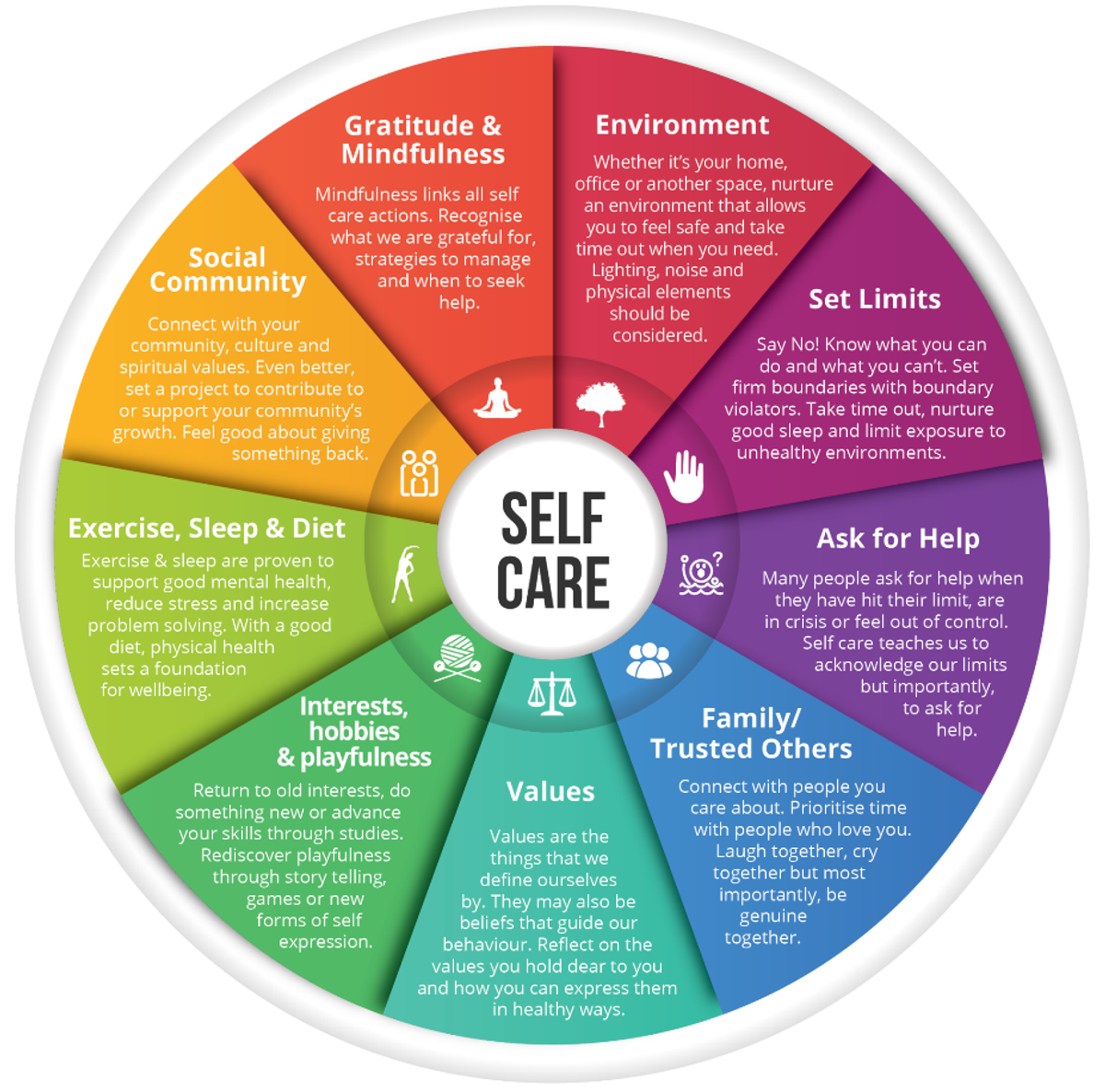Wellbeing at Homestead
Every day matters

Wellbeing at Homestead
Every day matters


1. Self-care
Prioritising your health and wellbeing is essential for successful studying. Ensure you are:
Getting enough sleepA well-rested mind is a more effective one. Aiming for 8-10 hours of sleep per night can help with memory, concentration, stress reduction, emotional balance, improved mood, and clearer thinking.
Eating regularlyEnsure you are eating a well-balanced diet, including regular meals and snacks and plenty of water.
Exercising regularly Physical activity boosts brain function and reduces stress. Choose an activity that best suits you.
Spending time with family and friendsSocial connection is essential to maintaining emotional support and improves overall health and personal growth. Shared experiences with friends can contribute to a sense of connection and validation.
Engaging with your extracurricular activitiesIt is important to stay connected and involved in things that you love and enjoy.
Asking for help when needed Asking for help can look very different. Your teachers are always there to help you when you need support with your studies. Wellbeing will always be available to you if you need it, at school or in your community.
2. Study Routine
Creating study groups with friends or peers can encourage motivation for studying and gives you the opportunity to teach and learn from each other, while staying connected.
You can always reach out to your teachers to discuss concerns. You can arrange a time during period 0 to meet with them and attend study club on Thursday afternoons.
Creating a schedule for studying can allow you to prioritise all important areas of your life, to ensure you are meeting all of your needs.
Creating a study plan and timetable can be helpful to ensure you are allocating time to studying for all subjects and also having time to care for yourself.
3. Stress management and Mindful Practices
Manage stress effectively Recognise the signs of stress (brain fog, procrastination, trouble sleeping, poor concentration, disengagement from friends or classes). Take proactive steps to manage your stress, whether it’s through exercise, talking to a friend, playing sports, or engaging in a relaxing activity, find what works best for you.
Try Mindful Activities Try to incorporate mindful activities into your daily routine, like meditation, deep breathing or taking a slow walk.
Seek support when needed
You can seek wellbeing support at school or talk to a responsible adult at home if you are struggling and need more tailored support to manage your stress.
4. Reflect and modify
Modify when neededRegular reflection on your study and self-care routine can help to identify any areas that need adjusting to suit your needs, which can often change.
Celebrate your successesNo matter how big or small you think a success is, make sure you celebrate it. Rewarding yourself can make studying more enjoyable and increase your motivation.
Bethany & Emma
School Counsellor and Mental Health Practitioner